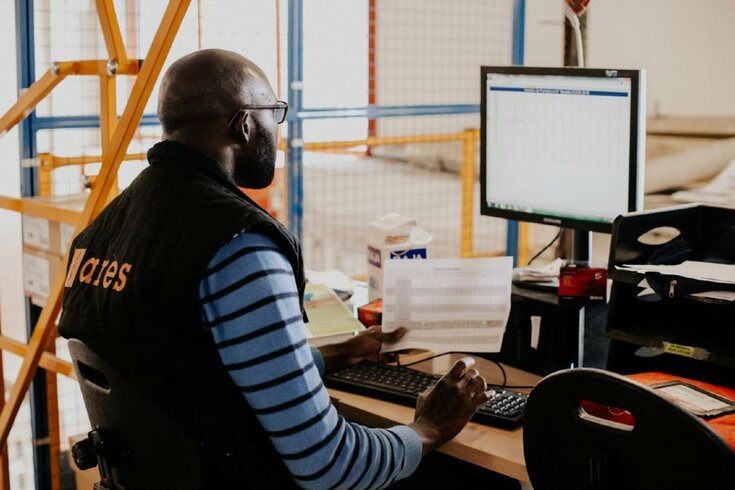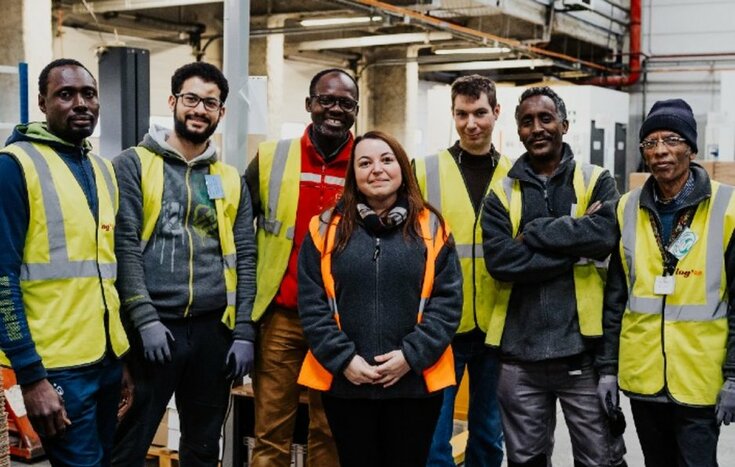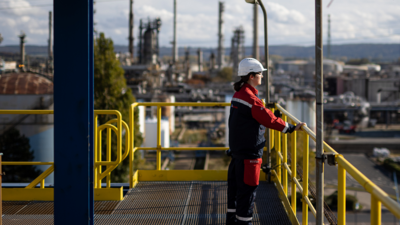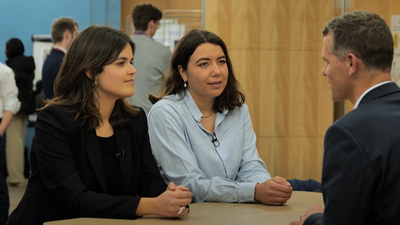Fighting poverty through professional integration
The Air Liquide Foundation’s commitment with ARES
Published on September 17, 2020
6 minutes
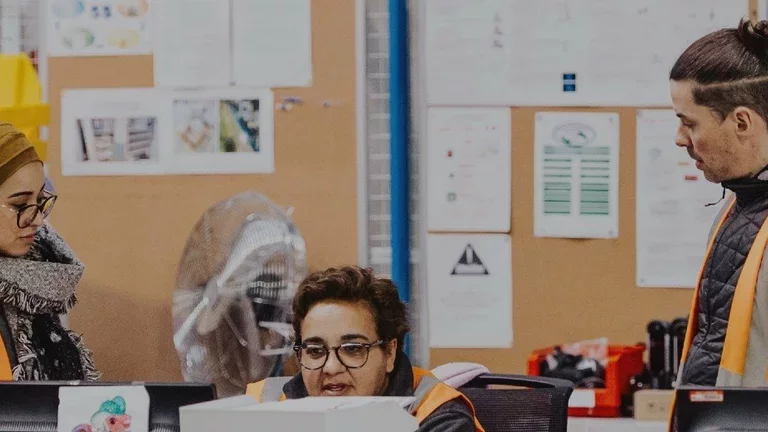
Around nine million people in France currently face poverty1, including almost one million young people between the ages of 16 and 25 who are not in employment, training or education2. To deal with this situation, professional integration is a primary focus which is played out at a local level, as close as possible to the most vulnerable groups. The non-profit organization ARES knows this and is an advocate of this approach. Its work has been supported by the Air Liquide Foundation since 2019, for a period of three years. Focus on this partnership with Marie Yen, Head of Operational Excellence at ARES, and Joël André, an Air Liquide employee seconded full time to ARES as part of a skills-based sponsorship scheme.
How was the ARES non-profit organization started?
Marie Yen – ARES was founded in 1991 by Patrice Leroy, a director at the SNCF at the time, Philippe Crouzet, a member of the Council of State, and Patrick Gagnaire, a social worker. All three wanted, through work, to help restore the confidence and dignity of the homeless based in the Gare de l’Est and Gare de Nord areas of Paris. Over nearly 30 years, the organization has grown and extended its reach to all those facing social exclusion in a few key areas in France, but always by focusing on integration through economic activity.What is the purpose of ARES? What work does it do?
M. Y. – At ARES, we believe that “no one is unemployable.” To prove this, we sign contracts with companies for a wide range of missions, in sectors such as construction, logistics, recycling or digital technologies. These missions are carried out by employees hired directly by ARES on fixed-term integration employment contracts. In this way, we currently support the integration of more than 1,000 individuals, mainly in the Île-de-France region, helping them gain access to the labour market and also providing them with social support to help them manage their daily lives and address the factors which led to their initial position of insecurity. This two-fold approach is incredibly important and requires those following the scheme to show willingness and a strong commitment. In our view, motivation is the only condition of employment.Joël André – For my part, I had not heard of the organization before I joined it through the skills-based sponsorship scheme in 2020. What struck me immediately was that the people hired by ARES often had very complicated histories: they are former inmates, people with addictions, the homeless. But thanks to the support received, almost two thirds of them achieve long-term reintegration into society. It’s remarkable! For me personally, that in itself is a major source of motivation on a daily basis: we are helping tangibly change people’s lives.
Why does the Air Liquide Foundation support ARES? And how?
M. Y. – When we met with the heads of the Air Liquide Foundation to examine a partnership project, it was clear that ARES’ social project was an excellent match for their determination to support local development, notably through professional integration programs. Safety concerns quickly emerged from our discussions as a common focal point. We constantly welcome new arrivals and therefore the accident rate is high, unfortunately. It is our duty to continuously raise awareness of professional risks. I would even go as far as saying that safety is an essential life skill to ensure a successful and long-term integration into the workplace, in particular in technical professions. The correct actions and the ability to prevent danger are things that can be learned. And that is where Joël supports us.
J. A. – Yes, we have jointly worked on a project to develop a culture of safety, which draws on the principles of the “Zero-accident target” policy already in place at Air Liquide. This culture has been strongly instilled in me throughout my career at Air Liquide, notably when I was Head of Safety for the French industrial subsidiary. When I decided to volunteer for a skills-based sponsorship project for an association, the Air Liquide Foundation instantly put me in contact with ARES to support them on this issue of safety in the workplace. The Foundation therefore is supporting the organization at two levels: through a donation of 225,000 euros over three years and also through this skills-based sponsorship. And this type of support is extremely important for me, as it is for the Foundation: financial support, although crucial, is not the only way to help. Sharing our time and our skills also has a huge impact!
In practical terms, how do you implement this “culture of safety”?
J. A. – The main challenge is successfully passing on the appropriate reflexes to people who will only stay with ARES for a year or two. To do so, we have identified three levels of intervention. Firstly, laying the foundations, by thoroughly analyzing the risks, processes and best practices set out in the Single Risk Assessment Framework. Then, running a major awareness campaign for everyone, including management, to ensure that these best practices are understood. Finally, closely monitoring any accidents which take place to draw lessons from each one and thus ensuring that they do not happen again.
M. Y. – The challenge is adapting this culture of safety to ARES and its specific characteristics: our employees work in a wide range of sectors, with different cultures and risks. We also have a wide range of profiles, all of which are a long way from the world of employment, and sometimes they have significant personal problems.
What impact has the Covid-19 pandemic had on ARES’ activity, the individuals it supports and its organization?
J. A. – This period has clearly placed health, and therefore safety, at the top of the list of priorities! As was the case for everyone, the onset of the pandemic was challenging from a human and economic point of view, but we were able to rapidly implement business continuity plans across all sites. This enabled us to maintain employment, even though it was reduced, while minimizing risks.M. Y. – Yes, everyone gradually adapted to the new tools and methods. The pandemic made the risks and the need to respect health and safety guidelines much more tangible. Joël’s expertise really helped us bounce back in the face of this crisis. We would even like to draw on this momentum to go even further and create team leader positions fully dedicated to safety.
To conclude, if you had to describe the Air Liquide Foundation in just two words, what would they be?
M. Y. – Reliability and commitment.
J. A. – Social commitment.
2 - https://dares.travail-emploi.gouv.fr/IMG/pdf/2020-006_da__les_neet_profils_parcours.pdf
Photo credits : Thibaut Deligey / ARES
